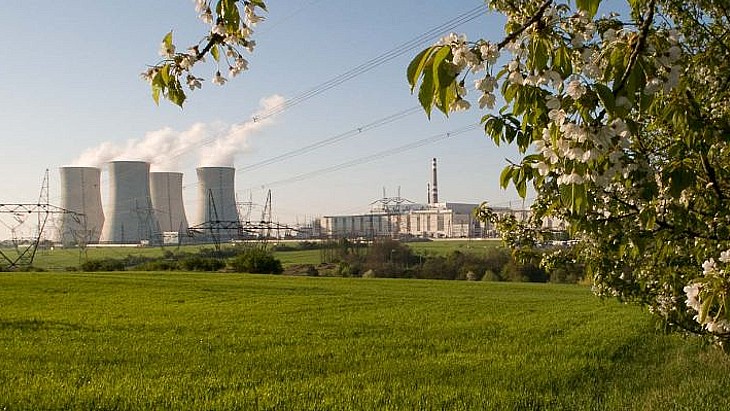The French and South Korean bidders, plus Westinghouse, had submitted binding bids in October for a fifth unit at the Dukovany nuclear power plant and non-binding offers for up to three more units - a sixth at Dukovany and two at the Temelin nuclear power plant. But in February the Czech government announced it was changing the tender to be binding offers for four new units, with Westinghouse not included because it "did not meet the necessary conditions".
Prime Minister Petr Fiala explained at the time that the decision to have binding offers for all four units was the result of the original tender suggesting that contracting for four units, rather than having separate processes, could have a 25% benefit in terms of costs.
Elektrárna Dukovany II (EDU II) will now assess the two offers - using a system based on International Atomic Energy Agency recommendations - from an economic, commercial and technical point of view and submit an evaluation report to the Czech government's trade and industry ministry. The aim is to finalise contracts ready for signing by 31 March 2025. The target date for start of trial operation of the first new unit is 2036, with commercial operation in 2038.
EDF is proposing its EPR1200 reactor, KHNP is proposing its APR1000 - both companies have stressed their agreements with Czech suppliers to localise work if selected.
EDF said its Updated Initial Bid Supplement "covers the supply of engineering, procurement, construction and commissioning activities ... the offer also covers the design and implementation activities for nuclear fuel and delivery of fuel assemblies for this programme".
Its proposal would also see Framatome, GE Steam Power and Bouygues Travaux Publics involved in the project which would have "a tailor-made Czech localisation process, enhancing economic value and skills development for the Czech Republic", with nearly 300 Czech companies identified already.
Luc Rémont, Chairman and CEO of EDF Group said: "By opting for a fleet approach with our European technology (EPR 1200), ČEZ and EDU II will secure a European partner committed to delivering the best technology with the best long-term benefits for the Czech industry and economy. The technological and industrial alignment between Paris and Prague that we propose holds the potential to reshape Europe’s new nuclear industry for generations to come."
KHNP CEO Jooho Whang delivered the company's binding offer, saying: "With successful projects in Korea and the United Arab Emirates, KHNP has proven that it builds on time, with quality and at the agreed price. We believe that KHNP is the best option for the Czech Republic in terms of timely completion of the first reactor by 2036 and energy security."
KHNP said the APR1000 reactor had already received European certification and said it had been designed "specifically for export to European countries and has been localised to meet European conditions and comply with requirements based on the latest International Atomic Energy Agency and Western European Nuclear Regulators Association standards".
It said that cooperation with Czech companies was a long-term priority, with more than 200 potential Czech suppliers identified and 50 memorandums of understanding signed, adding "KHNP is the only bidder counting on a Czech company for the delivery of the turbine, which is one of the most important and largest components in the nuclear power plant".
Also on Tuesday, the European Commission announced it had approved, under EU state-aid rules, the Czech government's support of the construction of the new nuclear. The Commission had opened its investigation in June 2022 and said that the proposals had been modified to take account of concerns during the process and the Commission "concluded that the aid is appropriate to achieve the objectives pursued, as well as proportionate as it is limited to the minimum necessary, while the competition distortions caused by the measure are minimised".
The Czech Republic currently gets about one-third of its electricity from the four VVER-440 units at Dukovany, which began operating between 1985 and 1987, and the two VVER-1000 units in operation at Temelín, which came into operation in 2000 and 2002. As well as the plans for the four new units, the country also has developing plans for small modular reactors.





_47120.jpg)
_23621.jpg)

_63865.jpg)





